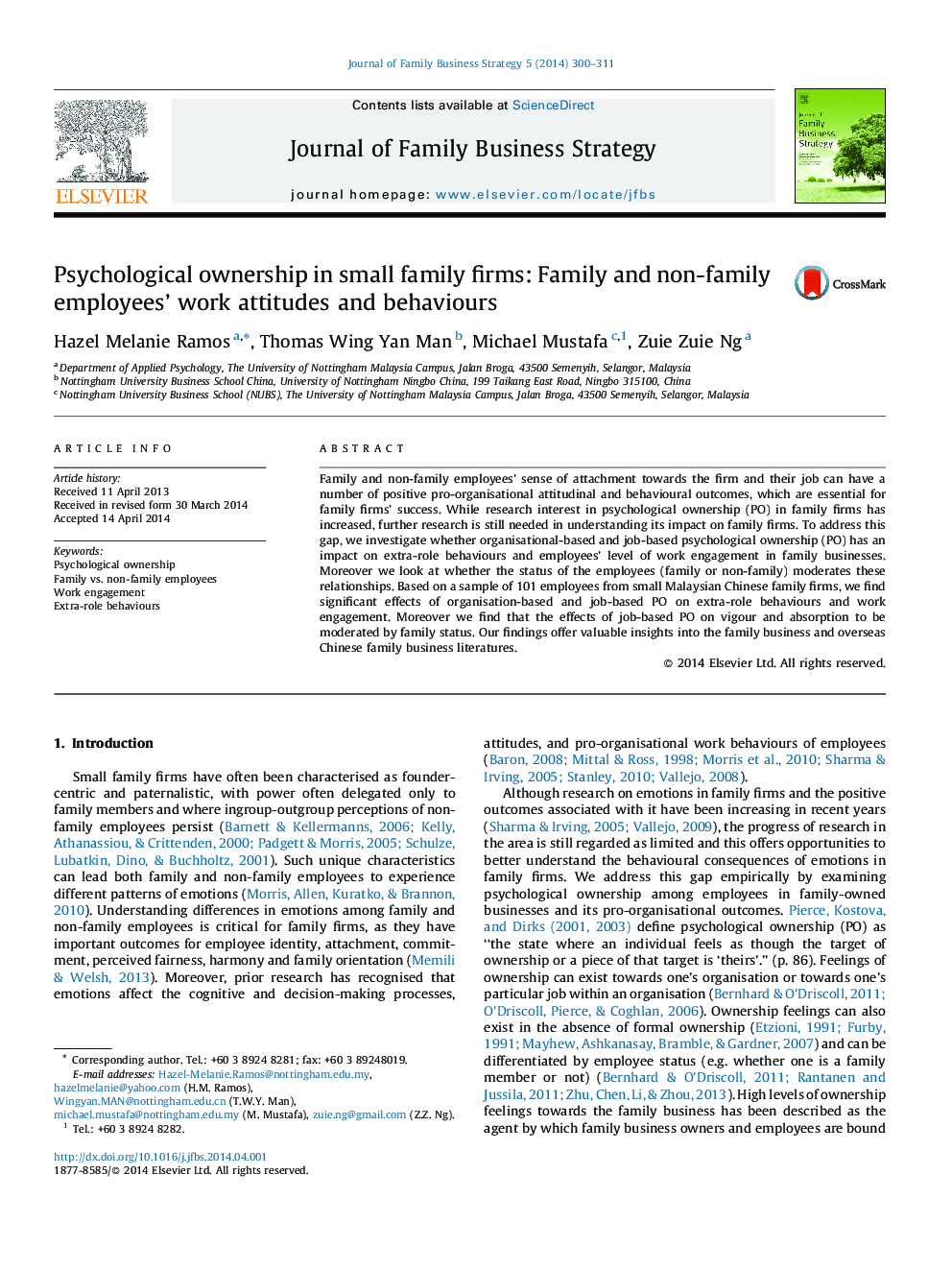| Article ID | Journal | Published Year | Pages | File Type |
|---|---|---|---|---|
| 1020165 | Journal of Family Business Strategy | 2014 | 12 Pages |
•We examine the relationship between psychological ownership (PO), extra-role behaviours and work engagement.•We examine potential moderating effects of family status on this relationship.•Data were collected from 101 family and non-family employees in 20 firms.•Organisational-based PO and job-based PO have different effects on extra-role behaviours and work engagement.•The effects of job-based PO on absorption and vigour are moderated by family status.
Family and non-family employees’ sense of attachment towards the firm and their job can have a number of positive pro-organisational attitudinal and behavioural outcomes, which are essential for family firms’ success. While research interest in psychological ownership (PO) in family firms has increased, further research is still needed in understanding its impact on family firms. To address this gap, we investigate whether organisational-based and job-based psychological ownership (PO) has an impact on extra-role behaviours and employees’ level of work engagement in family businesses. Moreover we look at whether the status of the employees (family or non-family) moderates these relationships. Based on a sample of 101 employees from small Malaysian Chinese family firms, we find significant effects of organisation-based and job-based PO on extra-role behaviours and work engagement. Moreover we find that the effects of job-based PO on vigour and absorption to be moderated by family status. Our findings offer valuable insights into the family business and overseas Chinese family business literatures.
